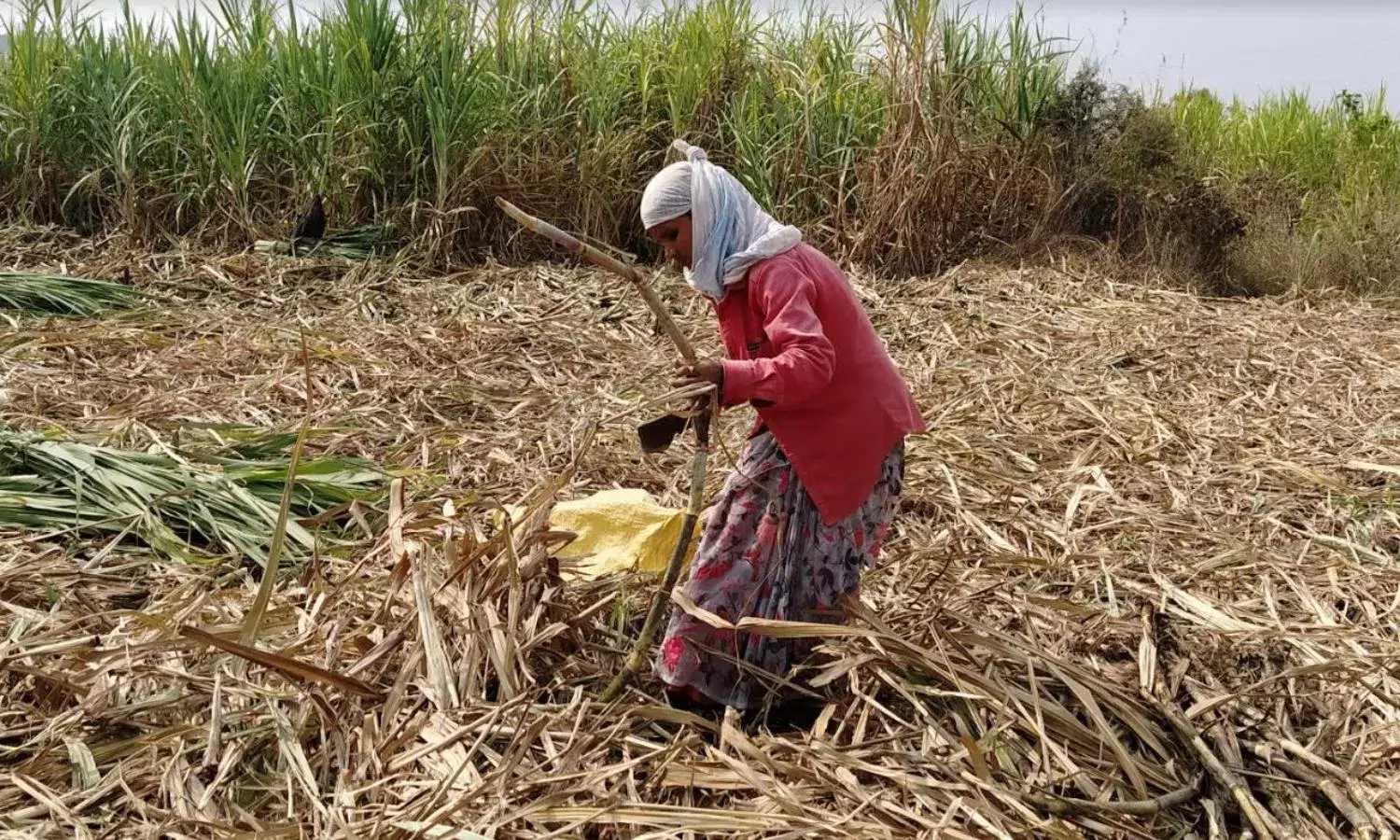Hysterectomy In Lieu of Leave for Woman Farm Labour in Beed
There are no sweet moment for Sugarcare farm labourers

“My body aches, my hands and legs hurt a lot, but I still have many trucks to load. If I delay it the workload will increase. I can eat only after the task is done,” said Sarika Laxman Chole, a 25-year-old labourer working on a sugarcane field at this village in Beed.
She works from 8 am to midnight, to earn Rs 300-350 a day. These gruelling work conditions have taken a toll on her health and that of others like her working as labourers on sugarcane fields, in Beed, Maharashtra.
The farm labourers are hired on a contract basis during harvest season, many couples take it up as they have no other option to earn a livelihood. Each worker is paid Rs 1 lakh when they are hired, and have to toil hard to complete meet the targets. The workday is up to 16 hours of work a day. Taking a break or a leave means they have to work extra hours or days.
Women labourers are “encouraged” and sometimes forced to undergo a hysterectomy, so that they do not have to skip work due to menstruation or pregnancy. A survey of 200 women in Beed district by the Maharashtra State Commission for Women in 2018 found that 36 per cent had undergone hysterectomy.
Vrundavani Panchal (40) who underwent a hysterectomy five years ago said, “I used to work in sugarcane farms but when I had irregular periods, a doctor advised me to go for the surgery.” She has not yet regained her health, is unable to eat properly and gets tired fast. As a result, she has not worked since last year.
The women labourers say that even if they go to a doctor for minor gynaecological problems they are advised to undergo a hysterectomy.
An emaciated looking Changuna Sadashiv Munde (32), who has been working as a farm labourer for the past 17 years, said, “even for a bare minimum wage, I’ve to cut the sugarcane, carry at least 40-45 kg on my head and load it on to the tractor.”
“When we are menstruating, we have stomach cramps and excessive bleeding at times, which makes it almost impossible for us to work. But if either I or my husband takes a day’s leave, we have to compensate by working additional hours,” she added.
Asked if any of the women used sanitary napkins, she said, “No. I don’t know about sanitary napkins. Since childhood, we were taught to use cloth, often dirty ones, that is what we practice even today.”
Changuna Munde and Sarika Chole say carrying loads of sugarcane is very tough during their periods as they feel weak and need to rest. Working in the summer is worse. But, the labourers say they are helpless since the harvest starts after Diwali (around October) and continues till June. The labourers said even if they fall sick, they don’t get leave; instead, the ‘thekedar’ (contractor) asks them to go to a doctor, get medicines and come back to work on the same day.
Shalu Babadev Chole (25), who brings her child to the fields, said that after working long hours her body aches severely. But, she and her husband have to continue working to make ends meet. They have two children, the younger children are brought to the fields by their mothers. “Even if I’m sick, I work so that my children can have a better future. I don’t want my children to work in the fields like me; I want them to be educated and become independent,” said Chole.
Asked why the women labourers fell sick frequently, Dr Khedkar, who runs a 24-hour clinic at Dhekan Moha, a village in Beed district, pointed out several reasons. “Diet is a major factor. Since they don’t get the basic calorie requirement, most women are underweight. During menstrual periods, women need breaks, and shouldn’t lift heavy goods. However, the sugarcane labourers have deadlines that don’t allow for such breaks, and they don’t even get regular health check-ups done.”
Dr Khedkar added that using unclean cloth as an alternative to sanitary pads also led to diseases. Many workers who come to the clinic suffer from leucorrhea, a vaginal infection. Many women have low calcium levels as a result.
The workers, however, are caught in a debt trap, from which there appears to be no escape, to even take notice of their failing health.



